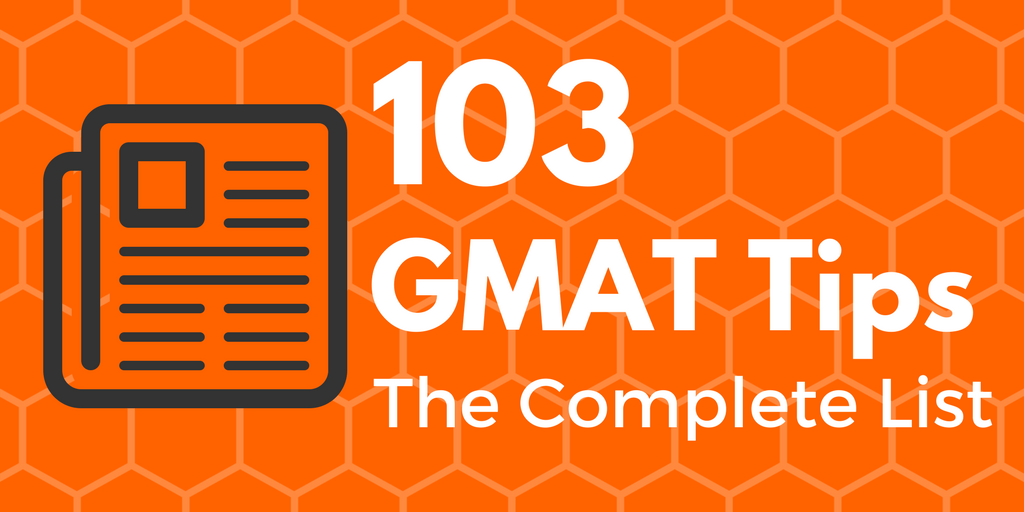
You can most likely remember some of the most well known GMAT tips and test taking strategies…
But can you recall them all?
Well you are in for a surprise because I have put together the complete list.
Some are mandatory.
Some are unique.
Others are so good that some people try to hide their existence.
But they are all here.
Test Preparation Tips

1. Know What Types of Questions to Expect: There are many different question types that they will ask on the exam. Most of the question types are well known, so you can study specifically for them. Look them up online so that you know what to expect.
2. Practice With Problems at the Edge of Your Ability: It is a waste of your time to practice with problems that are too easy or too hard. Try to find those problems that are just right so that you are improving your ability without becoming too frustrated.
3. Take Breaks When Needed: Studying can sometimes become tedious and boring. Make sure to take breaks so that you can study for longer periods of time. The more you can study the more you will be prepared for the exam.
4. Go Over Your Mistakes: Being able to learn from your mistakes is one of the best ways to prepare for the exam. Knowing what you did wrong and applying that knowledge to later questions is one of the quickest ways to improve.
5. Turn off Your Cell Phone While Studying: Your cell phone can be a distraction during study time. Also, your cell phone is not allowed in the room during the actual test. So why practice with it when you cannot have it with you on test day anyway?

6. Don’t Forget to Register: One of the worst things that you can forget to do is register. Make sure that you register now so that you do not forget. If you do need to register late, you can until about 2 weeks before you take your test.
7. Try Taking a Test Prep Class: Test preparation classes are a great way to study for the exam. They make you more motivated to study since you have to show improvement to your teacher. A lot of classes also have tons of information that cannot be found anywhere else.
See our list of the best GMAT prep courses.
8. Work on Your Weaknesses First: Improving weaknesses is a lot easier than improving strengths. Work on your strong points once you have upgraded your weakest subjects to the pain point. A low section score looks worse than a high section score looks good.
9. Try out Some Online Resources: There are tons of resources online (like this list of tips!) that are free for you to use and study with. Make sure to use them to their full potential. Do not spend money if you do not need to.
10. Simulate Real Test Day Conditions: To make the most out of your study time, simulate real test day conditions. You will really never know how you will react when it comes to test day, but this is the next best thing. It is difficult to prepare for something if you do not know what is coming.
11. Implement a Study Schedule: One of the most difficult things to do is to motivate yourself to actually study. Try implementing a study schedule to keep yourself on track. Setting aside a time each day to study makes it a lot easier to force your self to practice for the exam.
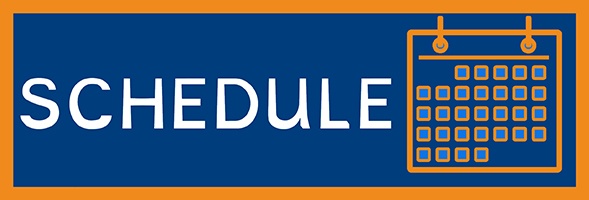
12. Learn All of the Section Directions: The directions from the test sections do not change from exam to exam. Learn the different section directions now so that you do not need to waste time reading them on test day. You never know, those extra minutes could really matter.
13. Teach the Concepts to Someone Else: One of the best ways to learn a new subject is to teach it to someone else. It forces you to think in a different way about a subject, enforcing it into your memory. You can also have your student teach you so that you both learn something.
14. Diagnose Your Skills Now: There are tons of diagnostic tests online that you can take to gauge your skills for the different subjects on the exam. Take one now so that you know what you need to work on. Knowing yourself is the first step to exam success.
15. Get a Test Preparation Book: A great way to practice for the exam is with a test preparation book. These books have a straight forward strategy laid out for you to tackle the exam. Don’t waste time figuring out what to learn and just learn.
See our list of the best GMAT prep books.
16. Practice, Practice, Practice!: Practice makes perfect and that is certainly no different on the GMAT. Practice as much as you can so that you are fully prepared for exam day. Many prep experts suggest studying for 50-100 hours for the GMAT.
17. Try to Practice Using a Computer From the Beginning: As you may know, the GMAT is a computer based exam, not a paper exam like other common standardized tests. Prepare yourself if you have never taken a computer exam before. It can take some getting used to if you are not used to a computer.
If you do not already have a computer, purchase one now. You can see our list of the best laptops for college for great tips, tricks and reviews.

18. Experiment With Different Math Solving Strategies: There are many different strategies for tackling the math section, and some strategies are geared towards certain kinds of students. Learn the strategies that make the problems easier for you, not more difficult.
19. Practice Doing Problems With a Calculator: As you may know, a calculator is not allowed on the quantitative section of the GMAT. Practice with math problems without using one. You may find out that you are not as good at mental math as you thought you were.
20. Take at Least 2 Full Practice Tests: Most test prep experts suggest taking multiple practice tests to prepare yourself for the GMAT. Try to make these tests as similar to the actual GMAT as possible.
General Test Tips

21. Try Covering up the Answer Choices: One good trick to try on multiple choice questions is to cover up the answer choices. Try to answer the question yourself without looking at them and then pick the selection that is closest to your original guess.
22. Read the Questions Carefully: The GMAT will often try to trip you up. Make sure that you read the questions carefully before choosing an answer. It would suck to waste time and then realize that you were answering the wrong question all along.
23. Eliminate as Many Wrong Answer Choices as You Can: If you do not know the correct answer choice right away, try to eliminate the choices that you know are incorrect. This makes it a lot easier to focus on the choices that have the most merit.
24. The First 5 Questions Are Important to Your Score: On the GMAT, the first 5 questions in each section are very important to your score. The GMAT is adaptive, meaning that it will make questions harder or easier depending how many prior questions that you have gotten right. It is hard to dig yourself out of a hole if you get the first few questions wrong.
25. Pace Yourself: On most sections of the exam you are not allowed to go back and forth between questions. Make sure that you are not spending too much time on one question. Since you cannot skip you cannot save the hard questions for last.
26. Schedule Your Test So That You Do Not Have to Wake up Earlier Than Normal: We are usually not at our best when we have to wake up earlier than we normally do. If you are used to afternoon classes, do not schedule an early morning test.
27. Do Not Be Clock Paranoid During the Exam: The clock will be on your screen at all times during the exam. It can be easy to become paranoid and check the time constantly. This can really be distracting. Try to focus on the test.
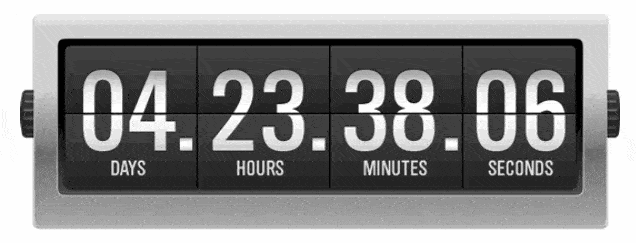
28. Every Question Is Worth the Same Amount: Every question is worth the same amount in each section. Do not waste your time trying to figure out a hard question if there are still easier ones ahead. Make an educated guess and move on.
29. Each Question Has Only 1 Correct Answer: You should be able to eliminate all other possible answers. If you come up on a difficult question, make sure that you have reasons why your answer is correct and why the others are incorrect.
30. Combine Similarities in Answer Choices to Find the Most Common Answer: The GMAT will often select answer choices that are half right, but there is only one that is fully right. For example: if the answer choices are blue cat, blue dog, red cat, and brown owl, a good educated guess would be blue cat since it has the most in common with the other answer choices.
31. Pay Attention to the Time Remaining Warnings: You should get warning when you have a small amount of time remaining in a section. Make sure that you are on pace to finish the section. It is important that you answer every question to get the best score.
32. Do Not Spend Too Much Time on Any One Question: Spending too much time on one question can really hurt you on the GMAT. Since you cannot skip questions and come back, it can be frustrating to make a guess when you are not ready. This may have to be done if a question is taking too much time.
Verbal Section Tips

33. About 20% of Sentence Completion Questions Are Correct as Is: Remember that there are no errors in sentence completion questions about 20% of the time. If you are finding too many errors, or too few, you may want to rethink your answer choices.
34. Eliminate Duplicate Answers: In the verbal section it is very common for 2 answer choices to be very very similar. It is often the case that both answer selections are wrong. Try to eliminate both and see if you can come to the correct conclusion.
35. Do Not Focus on Studying Vocabulary: Vocab is no longer a large emphasis on the GMAT. The GMAT now focuses a lot more on being able to find the meaning of words from the context of sentences instead of straight vocabulary.
36. Make Sure That Verbs Are of the Same Tense: A common error that is tested in the sentence correction section is verb tense. The tenses of verb should be the same in a sentence. Make sure that this is the case for your question.
37. Complete the Sentence Without Looking at the Answer Choices: A good trick to use on the GMAT is to try to complete the sentence with your chosen word and then select the answer choice that is closest to it. This makes sure that you are not biased by the answer choices.
38. Use the Context of Nearby Words: Using the context of nearby words is crucial on the GMAT. Try to decipher the meaning of unknown words with clues from the words around them. This makes it easier to figure out the true meaning of a sentence.
39. Reread the Sentence With Your Answer: Make sure that you reread the completed sentence with your answer choice. If it sounds funky, you may have selected the wrong answer choice. Sometimes a sentence when read in our minds can seem fine, but when read aloud sounds wrong.
40. Simplify Complicated Sentences: In sentence completion questions, it can be a good idea to simplify the sentences into just a few words. The extra prepositions can make verb tenses and sentence flow a lot more confusing. Removing these can make finding the errors easier.
41. Spend More Time on the Questions Than Reading the Passages: On reading comprehension questions try to spend more time answering the questions than reading the passages. Make sure that you are answering the question as intended.

42. Look for the Main Encompassing Ideas of a Text: The GMAT more often than not will ask more questions about the overarching or encompassing ideas of a text, rather than questions about a specific section. Try to get an idea of the story the passage is trying to tell while you are reading.
43. Do Not Take Too Many Notes: Try not to take too many notes while reading the passages. Some notes are good, but too many can really slow you down. The GMAT rarely asks specific questions, and if they do you can always go back and look in the text.
44. Read Actively: While reading the passages, try to read actively. Think about the ideas that the author is trying to convey and possible issues or problems with their argument. This also makes it more difficult to accidentally skim over something important.
45. Try to Find Choices Which Match Words Directly From the Passages: A lot of the time the correct answer choice will be one that matches exactly what was said in the passage. If this is the case, double check and select that answer.
46. Quickly Remove Irrelevant Choices: A lot of the time the GMAT writers will throw in irrelevant answer choices to throw you off. Discard these so that they do not distract you from the correct answers.
Integrated Reasoning Section Tips

47. Ask Yourself What Story the Data Is Trying to Tell: Always try to ask yourself what the meaning behind the data is. Many times the GMAT will ask you to come to a conclusion on the data being presented. Be prepared.
48. Focus on What You Need to Look for in the Data: A lot of the time the data that you are given will be more than what is needed to answer the questions. Do not get distracted. Just focus on the data that you need to look for, and nothing else.
49. Read the Questions Quickly Before Looking at the Data: Make sure that you read the questions quickly before looking at the data. This will allow you an unbiased view of the data and will allow you to weed out what is unneeded.
50. Get to Know the Different Types of Questions: Are are only a certain amount of question types that can be asked during the integrated seasoning section of the exam. Study these questions types so that you know what is coming.
51. If You Are Not Looking for a Perfect Score, Skip Any Questions That Are Taking a While: Taking too long on 1 question in the integrated reasoning section on the GMAT can badly hurt your score. If you do not know the answer, just guess and move on.
52. There Is No Partial Credit on Multi-Question Sets: If you get all of the questions correct, then you get credit, but if you do not then you get nothing. Multi-question sets are all or nothing. Keep this in mind when trying to figure out to skip a question or not.
53. Take Note of Any Relationships Between Variables or Trends: A lot of questions during the integrated reasoning portion of the GMAT will try to test your knowledge on the relationships between the variables. Keep this in mind.
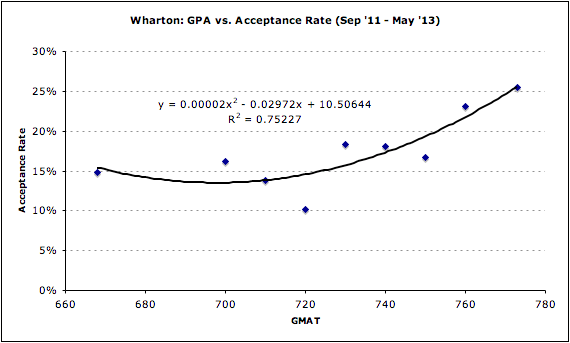
54. Double Check Your Units: The GMAT writers will often try to trip you up over units. Make sure that the answer that you come up with has the same units as the answer choices that you are picking from.
55. Know What Question That You Are Trying to Answer: The questions will often try to distract you from what really is being asked. Get a good grasp on what the question is really trying to ask then conquer it.
56. Rely on the Visuals: Make sure that you use the visuals given to you on the integrated reasoning section of the exam to your advantage. The visuals are put there to help you picture the data, so use them.
57. Practice With an on Screen Calculator: The calculator that you get to use in this section of the exam is an on screen one. Try to use the on screen calculator on your desktop or laptop while you are practicing for the GMAT to get used to the differences.
58. Sort Data From the Tables on the Exam: A tip this is less intuitive when you are taking the exam is that you can sort the tables. Click the top of each column to sort the data from smallest to greatest or the reverse. This can be very useful while trying to answer some questions.
Analytical Writing Section Tips

59. Use Specific Evidence: When writing your essay, try to use specific evidence from the passage to make your point. The GMAT graders want you to use the weaknesses of the passages against them. And there is no easier way than with specific evidence.
60. Analyze, Then Write: Make sure that you have your ideas thought out and well analyzed before you write. You do not want weaknesses in your argument to slip through the cracks because you did not write a developed outline.
61. The Concluding Paragraph Should Summarize Your View: Like with normal essay structure, make sure that your concluding paragraph summarizes your viewpoints. You want to wrap them up and leave the reading feeling like the argument has come to an end.
62. Avoid Being Too Wordy: Do not make your essay longer just for the sake of making it longer. A shorter and concise essay with well telegraphed points reads a lot better than an essay that is too long and can never make a point.
63. Break up Your Writing Into Parts: Your essay writing technique should be broken up into parts. First analyze, then write an outline, then write your full essay, and then edit it. Skipping one of these parts can be detrimental to your success.
64. Be Aware of the Writing Style in the Passages You Are Given: A lot of the time the writing style or tone of the passage that you are asked to read will give away a lot of the authors argument. Use this to write your analysis of their passage.
65. Try to Write a Longer Essay: It has been shown time and time again that on standardized tests that writing a longer essay allows you to get a higher score. This can be because of many reasons, but make sure to not leave time on the clock where you can still write.
66. The Body Paragraphs Should Expand on Your Arguments: The body paragraphs should really flesh out and scope out your arguments. Allow your writing to flow while making your body paragraphs. They should be well thought out and structured.
67. Use Creative Sentence Transitions: It can be really boring to read a passage where every sentence starts with the same word or structure. Break up your sentences by using creative sentence transitions, your readers will thank you.
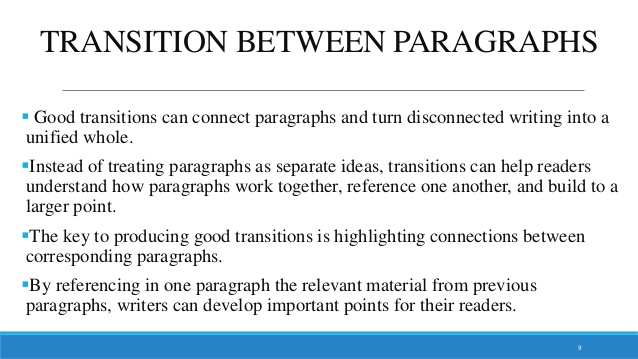
68. Avoid Slang: Using slang in your essay can be a really bad idea. It can distract the exam graders and make them overlook the substance of your essay. Keep slang to a minimum and focus on a clean writing style.
69. Only Use Information From the Passage: Do not try to use information that you have learned from outside of the test while making your arguments. The test readers may not know these facts and will just discard your argument anyway.
70. Keep in Mind Essay Structure: Proper essay structure is essential to GMAT success. The GMAT graders read 1000s of essays and can become frustrated when a structure is confusing or not straight forward. Make sure that your essay is easy to follow.
71. Do Not Tell the Readers Your Opinion: The GMAT graders do not want to know your opinion. They want the facts and an argument. Give that to them. They do not care about something that cannot be backed up.
72. Keep Your Writing Simple: Keep your writing simple and to the point. A simple essay is a good essay. Trying to use words that are outside of your vocabulary can really hinder the ideas that you are trying to get across.
73. Your Introductory Paragraph Should State Your Position Being Taken: Your introductory essay should state your position that you are trying to take. This makes it simple for the readers to follow along since they know how you are going to be taking the essay.
Quantitative Section Tips

74. Substitute Numbers for Variables: A good trick to use is to try to substitute numbers for variables in algebra questions. This really allows you to see how different numbers affect the solution, allowing you to possibly eliminate some answer choices.
75. Draw Pictures: Drawing pictures allows you to really visualize the problem. This visualization may really open up your eyes to the correct solution. Try it out and see if it makes any problems easier.
76. Use Your Notecards for Scratch Work: You are allowed to use notecards on the exam. Try to use them for scratch work since the exam is computer based. This can really help if you need to write things out to see them.
77. Get Used to Not Using a Calculator: Get used to not using a calculator now instead of being surprised on exam day. Practice questions without one and see how you fare. Many find that they are not as good at mental math as they thought they were.
78. Make Sure That Your Answer Is Reasonable: When selecting an answer choice, make sure that it is reasonable. You may not to select 12 as an answer choice if all of the numbers in the question are in the 1000s.
79. Work With the Smallest Numbers Possible: A nice trick to do is to use the smallest numbers possible. It is a lot easier to multiply 9×12 than it is 900×1200. Make the numbers smaller and just add back the zeros.
80. Learn All of the Critical Definitions and Formulas: There are questions and definitions that show up often on the exam. Make sure to look these up before exam day so that you are not caught off guard.

81. Substitute Answer Choices Into the Problem: When you are stuck on a difficult problem, try to substitute the answer choices into the problem. This can make problems a lot easier since you can see if 2 sides of an equation equate or not.
82. Do Not Ignore the Diagrams: More often than not the diagrams are there to help you, not to distract you. Give them a glance over to see if they may help in solving the problem. They may make a problem clear when it was previously unclear.
83. Be on the Look out for Tricks: The GMAT exam writers will often try to throw tricks at you on near every question in the quantitative section of the exam. Be on the look out for them so that you do not get tripped up.
84. Read Each Question Carefully: Since the writers are trying to constantly trick you, make sure that you are reading the question correctly and are answering what is being asked of you. You do not want to stumble on this section of the exam.
85. Do Not Get Carried Away With Detailed Calculations: If you catch yourself taking to long to solve a problem, then stop and take an educated guess. Many students find it difficult to finish this section on time so do not waste time on a question that you might not get right anyway.
Night Before and Day Of Tips

86. Have a Healthy Breakfast: Breakfast is the most important meal of the day, so make sure that you get a good one the morning of the exam day. Even if your test is in the afternoon, a good breakfast is important for a productive day.
87. Bring Layers: The temperatures instead the testing area can vary from very hot to very cold. Make sure to bring layers so that you can take them off if you are warm and can put them on if you are cold.
88. Bring a Drink: You are not allowed to have a drink in the exam room, but you are allowed to have one in the break areas. Make sure to keep yourself hydrated and nourished during those break periods.
89. Do Not Bring Your Cell Phone: Your cellphone is not allowed in the testing area. Make sure to keep it in your assigned locker or in your car.
90. Do Not Cram the Night Before: Cramming the night before can be detrimental to your exam success. If you have not learned it by now then it is too late. Have a stress free night before the exam.
91. Avoid Screen Time: The blue light from computer and phone screens can make you less likely to fall asleep. Try to avoid these before bed time so that you are ready and rested for test day.
92. Pack Your Things the Night Before: Make sure to pack your things the night before test day so that you are not trying to find things the day of. Not being able to find your wallet or keys when you need to leave can be very frustrating.

93. Scope out Your Drive Beforehand: Sometimes testing locations can be in unusual areas or off the beaten path. Make sure that you know how to get there so that you are not late on exam day.
94. Go to the Bathroom Beforehand: Having to use the restroom can be very distracting. Make sure that you go before you take the exam and during the breaks. You do not want to be distracted during this important exam.
95. Steer Clear of Nervous People: You really can feed off of nervous energy from others. Make sure to steer clear of anxious people on test day so that you can have a clear mind and soul before your big exam.
96. Bring a Pen or Pencil for Scratch Work: Bring a pen or pencil that you are comfortable with for scratch work. Sometimes the utensils given to you are not of the highest quality.
97. Bring a Snack: Sometimes you can get hungry during the exam. You are not allowed to eat in the exam room, but you can eat during breaks. Bring a snack to have during these break times and just store it in your locker.
98. Bring Your Photo ID: Do not forget your photo ID. The testing site needs to confirm your identity so you must have it.
99. Get to the Test Site Early: To get rid of one possible source of stress on test day, get to the exam site early, you will thank yourself.
100. Remember Your Body Language and Posture: Your body language and posture really has a big effect on your performance during the day. Sit up straight or you may find yourself starting to get tired.

101. Get a Good Nights Rest: A good nights sleep is crucial to being ready on exam day. You will be more focused for the exam and can concentrate a lot easier. A clear mind leads to a much higher score.
102. Leave the Room During Your Breaks: You have the option to stay in the exam room during breaks, or leaving. Make sure that you leave the exam room so that you can clear your mind from the previous session. You also cannot eat or drink in the exam room.
103. Do Not Worry About Sections That You Are Done With: The past is the past and you cannot change what happened. Keep yourself grounded and focused on the sections ahead. Do not let 1 section ruin your entire GMAT.
Have Any Other Tips?
If you happen to have or know any other tips not mentioned here, please leave them in the comments below.
I hope to update this list from time to time in the future with new tips and test taking strategies that the readers think up.
GMAT Tips: Reviewed
| GMAT Section | # of Tips | |
| 1 | Verbal | 14 |
| 2 | Integrated Reasoning | 12 |
| 3 | Analytical Writing | 15 |
| 4 | Quantitative | 12 |
| 5 | General | 50 |
Leave a Reply